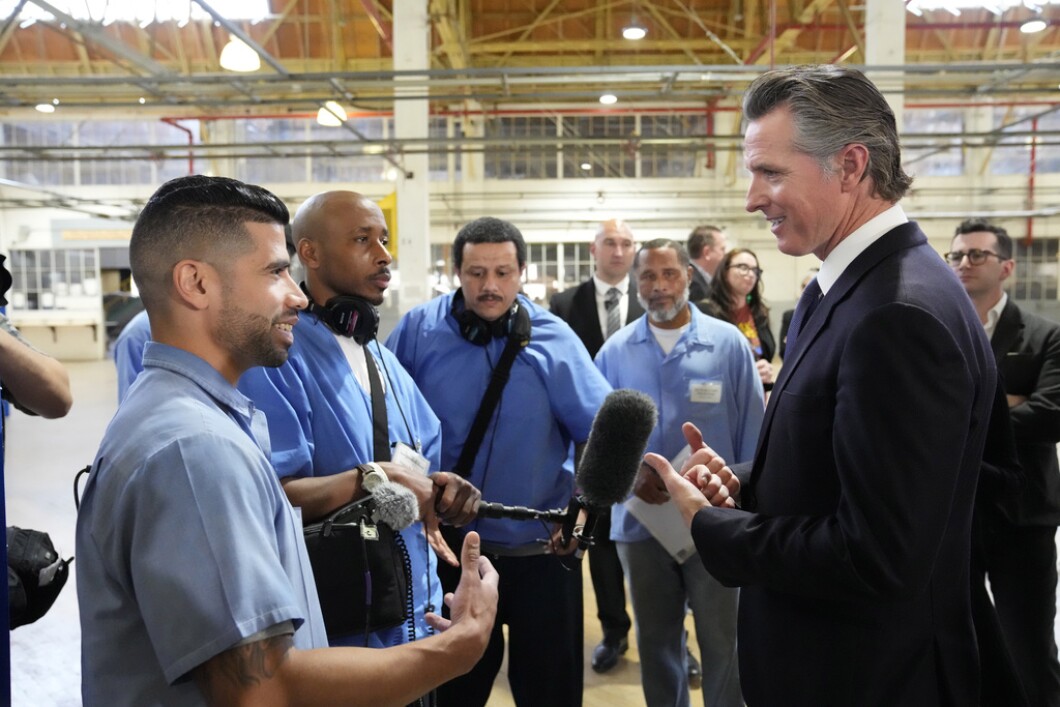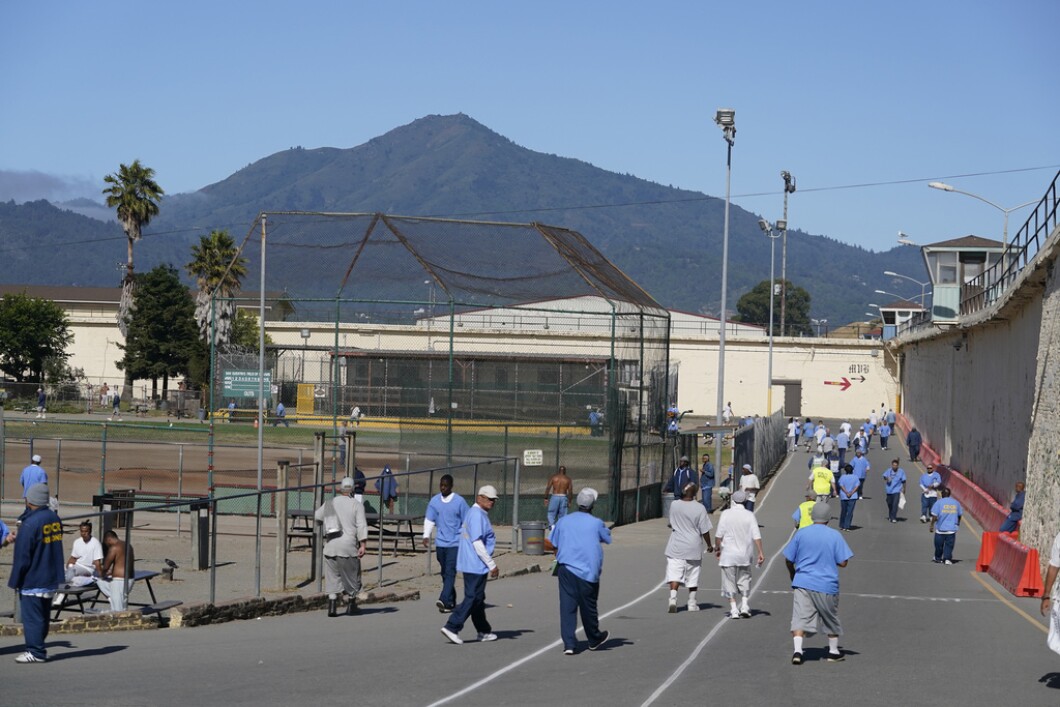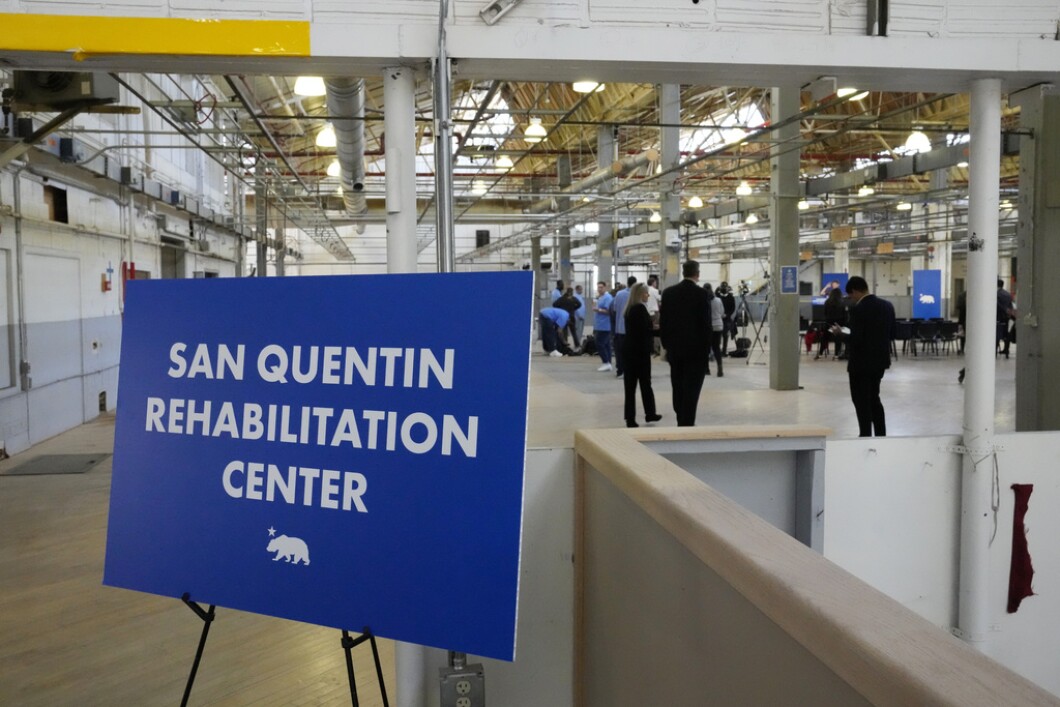
Gov. Gavin Newsom’s (D-CA) $360 million plan to transform the notorious San Quentin prison is sparking outrage from critics who claim the Democrat is holding secret meetings with no oversight and purposely keeping the public in the dark.
Republican lawmakers and prison advocates have teamed up to demand more transparency on the mystery multimillion-dollar effort to remake the prison into a rehabilitation center with a college-like setting, complete with a student union and a coffee shop for inmates.
BIDEN STRUGGLES TO HEAD OFF MOUNTING UNION TENSIONS AS HE PURSUES GREEN AGENDA
Brian Kaneda of CURB, a criminal justice reform coalition, called spending so much on new prison infrastructure “a step in the wrong direction.”
Newsom hand-picked a 21-member advisory council in June to help shape the new facility’s design. Members include senior officials from San Quentin as well as top political allies for Newsom like Sacramento Mayor Darrell Steinberg. The group has met five times since June, but what was discussed has not been disclosed.
“If there’s no public accessibility to the San Quentin advisory council meetings, that’s a really significant concern that I think people aren’t paying enough attention to,” Kaneda told the Associated Press.

Even though the council has tentatively said it will provide a preliminary report sometime in September, people have remained skeptical. A more formal report is expected in December, though, again, the date is up in the air.
What has been apparent is Newsom’s lack of transparency and the frustration mounting over the massive price tag at a time when the state is running a nearly $32 billion deficit.
Republican Assemblyman Tom Lackey, who sits on the budget subcommittee on public safety, said Newsom did not seek lawmakers’ input.
“We’re the oversight, supposedly,” he said. “So how can you oversee something that has such minimal amount of communication?”
Earlier this year, Newsom told the Los Angeles Times he wanted to shift the public’s perception of prison by “ending San Quentin as we know it.”
By 2025, Newsom wants California’s first and most infamous prison complex, which has housed Charles Manson, Sirhan Sirhan, and Scott Peterson, to be known for being the best at offering education and job skills to those in California’s prison system. San Quentin will no longer be a menacing-looking complex but will be converted into a peppy place for “turning out good neighbors” and “incorporating Scandinavian methods.”

Officials from California’s Department of Corrections and Rehabilitation toured Norwegian prisons in 2019 and came back with a positive view. The maximum security prisons they saw were outfitted to look more like dorm rooms with furniture, chairs, and desks as opposed to overcrowded century-old cells. Some even had TVs. Inmates also had access to the kitchen and got along with their peers and staff. Oregon and North Dakota have also pulled inspiration from Norway’s prison policies.
After the remodel, San Quentin State Prison, which was opened in 1854, will be renamed the San Quentin Rehabilitation Center. More than 500 inmates who are currently serving death sentences there will be reshuffled to other facilities across the state.
“We want to be the preeminent restorative justice facility in the world — that’s the goal,” Newsom said in March from an on-site warehouse that will purportedly be used as the main site. “San Quentin is iconic, San Quentin is known worldwide. If San Quentin can do it, it can be done anywhere else.”

Despite the aspirations, former inmates like Thanh Tran, who was locked up between 2018 to 2022, said the whole process of giving San Quentin a makeover might sound nice, but pivotal information about the project has been kept private.
CLICK HERE FOR MORE FROM THE WASHINGTON EXAMINER
“The governor has made his choice,” Tran, who now works for the Ella Baker Center for Human Rights, told the Associated Press. “He has given this unfettered power to this advisory council that is allowed to meet in secret, and we are boxed out.”
Initially, state lawmakers from both sides of the aisle laughed when Newsom’s office told them the $360 million price tag and rejected it outright. However, budget lawmakers eventually passed provisions that would have allowed them to appoint at least two members to Newsom’s secret advisory board and would have required publicly held meetings and updates. But, in a last-minute twist, they signed off on Newsom’s entire deal, trading away oversight and accountability.




